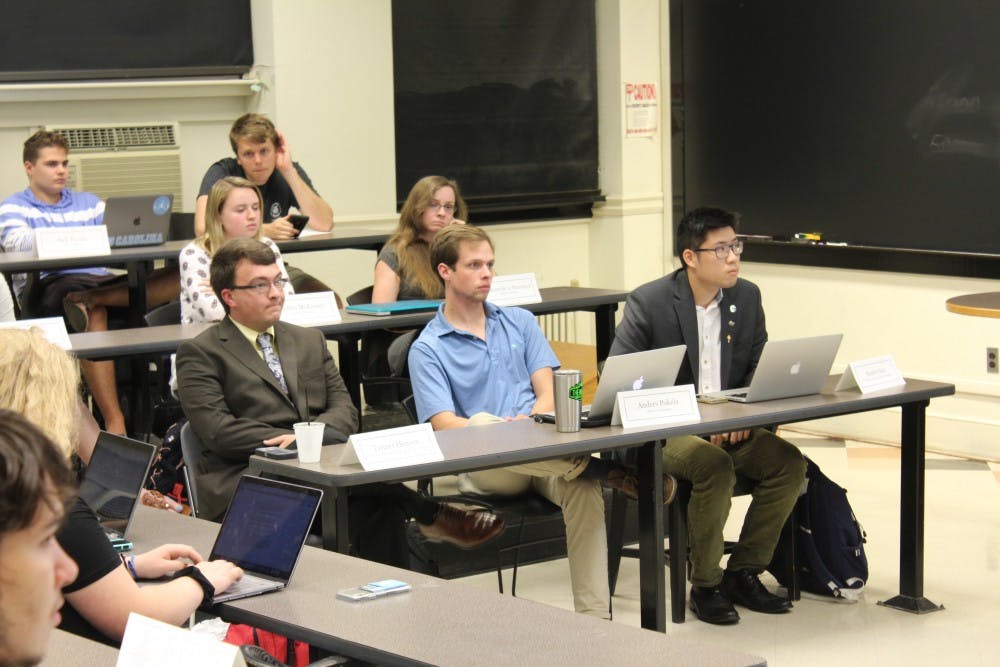UNC’s Undergraduate Senate will soon vote on a bill that could make a seat on the senate a paid position.
The bill proposes that a lump sum of $8,000 be set aside to distribute between the 27 senators who will hold seats next term. A senator's one-time payment would be determined based on the percentage of meetings they attended.
In order to qualify, senators must attend at least 75 percent of meetings, with the maximum potential stipend being $300. Any senator who misses more than 25 percent of each semester's meetings does not qualify for the stipend.
The bill would also provide $100 to the Speaker Pro Tempore and $75 to committee chairs each month in place of the up to $300 stipend.
The sponsor of the bill, Rules and Judiciary Committee Chairperson Tanner Henson, said he proposed the bill to bring fairness to student government, since members of the other branches already receive stipends.
“The idea was to create at least equability between the different branches and make senate more attainable to everyday people here at Carolina,” Henson said. “It’s a pretty large time commitment, and I think some people who may want to run for Senate don’t feel able because they have to work jobs and such.”
Stephen Wright, speaker of the Undergraduate Senate, said the bill was set to be voted on Tuesday, but the meeting was canceled due to a lack of quorum. Many members of the public were in attendance and were able to voice their concerns for paying senators, he said.
Senator Noē Brown said she felt people are swayed away from running for senate due to the long meetings and extra responsibilities.
“I support the proposal because it really drives interest in senate,” Brown said. “Recently we haven’t had a huge voter turnout or had enough senators running.”



